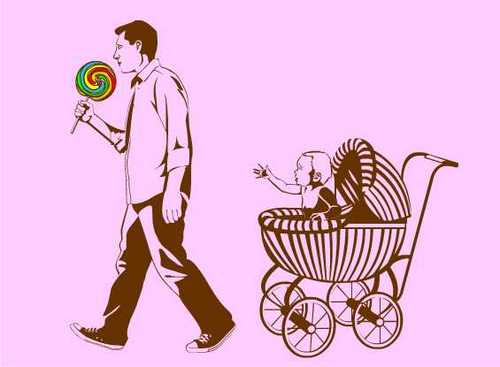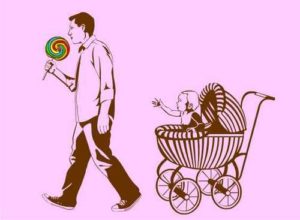 The most valuable commodity we have in this life is time. This is a theme that recurs time and time again in my posts. With that being said, to practice minimizing when it comes to time, one would reduce time spent doing activities that do not add value to their life while maximizing time spent doing activities that DO add value to their life. Simple, right? (rhetorical)
The most valuable commodity we have in this life is time. This is a theme that recurs time and time again in my posts. With that being said, to practice minimizing when it comes to time, one would reduce time spent doing activities that do not add value to their life while maximizing time spent doing activities that DO add value to their life. Simple, right? (rhetorical)
Commuting is a big part of that. Our regular daily commutes that is. Most of us average folk get up in the morning, get ready, grab a quick bite for breakfast, then head out to our job. When our work day is over, we commute back home again. We do this five days a week almost every week of the year (holidays and vacation aside).
When we add it all up the commuting part of our day is quite a significant portion of our lives. So is it worth it? Is it worth so much time away from our families to work where we do? …… Depends. It depends on how long the commute is, how much we make at our job, if our job gives us any sense of purpose (a career). For most of us our jobs are actual work, so lets assume its not a career.
Work: definition – Time one spends doing an activity when they would rather be doing something else.
Lets start with the length of our commute.
In this day and age I still know many people who live here in mid-state NY that commute to the city everyday to go to work. Always I am compelled to ask “WHY?!”, “Why deal with such a long commute.” Always the answer is: “I make sooo much more money there.” I can’t help but think …. “really?” I doubt they really did the math.
Lets say that somebody scores a fabulous job at 100,000/year (Wahh Hooo), but they have to commute 1.5 hours to work one way (this is common). This means technically they are commuting 3 hours a day in addition to their 8 hour work day. That’s 11 of work per day. Make no mistake, that IS 3 hours of work. So this person works 11(hours)*5(days)*52(weeks) = 2,860 hours a year. This is $100K/2,860 = $34.97 an hour.
If they were working a non-commuting job at that rate their yearly pay would be $34.97*40(hours)*52(weeks) = $72,727.27. So in actuality Mr. six figure salary only really makes $73K a year, it just turns out to be $100,000 with all the “overtime” they are putting in.
This person would be better off taking a job making $73K a year close to home, as it would give them back 3(hours)*5(days a week)*52(Weeks) = 780 hours per year of their life back to spend on activities that add value to their life. Family time perhaps.
Oh, and we have not even considered that the commute itself costs money. I recall on my city trip that a round trip train ticket is $37 for off peak (job travel will be ON PEAK, so this is a generous number). $37*5(days)*52(weeks) = $9,620 a year in travel alone. If someone drives for their commute instead, there is gas, parking, and wear and tare on the vehicle. With all of that, I promise it will be no less than an additional $5,000 a year.
In the end, It’s rarely even worth it. Time is so much more valuable than money.
It may even be worth considering when deciding to live in a building apartment. People tend to favor living up on a high floor in an apartment building as opposed to a ground floor. I think it’s because they like the view. But do they consider the consequences? Keep in mind, the time it takes to get from the front door the building to the front door of the apartment is part of every commute that a resident makes. Lets suppose it takes 30 seconds to get from the building door to the apartment door for someone who lives on the ground floor. Let us also suppose it takes 1:30 minutes to get from the building door to the apartment door for someone who lives on the 10th floor. For the sake of simplicity lets assume this person only does one commute per day. 1(minute)*7(days a week)*52(weeks) = 6 hours additionally per year just on building transit. Is having a good view worth 6 hours per year of our life? Maybe, maybe not.
Going back to Mr. Six Figures up above. I’d like to ask him a question: “Would you spend $27K to get 780 hours(32.5 days) of free time back?”I think he would pay. I have known too many executives that wish they could spend more time with their family. Keep in mind that the 32.5 days is truly FREE time. No sleep and no eating needed, as those are already accounted for in the time they have presently in their normal day when they are not commuting.
This is the thinking of a minimalist.



 There are many areas in ones life that one can use some minimizing, but the one that is often overlooked is our thoughts. It’s too bad to, because this it the one most closely linked to happiness. Well actually, there are two types of “mental clutter”: Useless knowledge (I often refer to as “empty calorie entertainment” for the mind), and useless thoughts and emotions. For this post I am discussing useless thoughts and emotions; I have discussed useless knowledge in previous posts.
There are many areas in ones life that one can use some minimizing, but the one that is often overlooked is our thoughts. It’s too bad to, because this it the one most closely linked to happiness. Well actually, there are two types of “mental clutter”: Useless knowledge (I often refer to as “empty calorie entertainment” for the mind), and useless thoughts and emotions. For this post I am discussing useless thoughts and emotions; I have discussed useless knowledge in previous posts.
 I recently had a conversation with a good friend of mine (lets just call him Ziggy), Where Ziggy and I were trying to come up with the most selfish act a person can do ……. and has done. His best submission was awesome.
I recently had a conversation with a good friend of mine (lets just call him Ziggy), Where Ziggy and I were trying to come up with the most selfish act a person can do ……. and has done. His best submission was awesome.